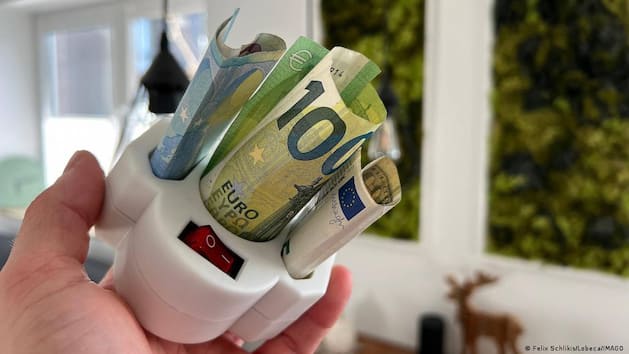In December, consumer prices climbed by 9.2 percent within a year, according to an initial estimate from the statistics office Eurostat on Friday. The inflation rate was 10.1 percent in November and 10.6 percent in October. Economists had only expected a decline to 9.7 percent.
“Inflation in the euro area has only fallen significantly because fuel and heating oil have become cheaper and the German government took over the gas payments for many citizens in December,” said Jörg Krämer, chief economist at Commerzbank, in a first reaction. In contrast, excluding energy and food, inflation in the euro area continued to rise from 5.0 to 5.2 percent. “There can be no question of any real easing on the inflation front. The ECB remains under pressure to raise interest rates sharply.”
According to Eurostat figures, inflation has eased for the second month in a row. Despite the renewed decline, it is still more than four times the European Central Bank’s (ECB) medium-term target of two percent. The currency watchdogs consider this level to be appropriate for the economy in the 20-country community.
Energy prices fueled inflation again in December, albeit not quite as sharply. Energy prices rose by 25.7 percent year-on-year after 34.9 percent in November. Food, alcohol and tobacco prices rose 13.8 percent from 13.6 percent in November. Non-energy industrial goods prices rose 6.4 percent in December. In November, the increase was 6.1 percent. Services rose 4.4 percent in December after 4.2 percent in November.
ECB boss Christine Lagarde recently signaled that the European Central Bank will continue to raise interest rates in the new year. In the fight against the high price pressure, the central bank raised key rates by 0.50 percentage points at its interest rate meeting in December. After two jumbo rate hikes in September and October, it took its foot off the gas by 0.75 percentage points. Lagarde promised that the rate of increases of half a percentage point would probably be maintained in the coming meetings.
The next ECB interest rate meeting is on February 2nd. The euro central bank has already raised interest rates four times in a row within just a few months. The deposit rate that is decisive on the financial markets and that banks receive for parking excess funds at the central bank is currently 2.00 percent.
ul/min (rtr, dpa)
Germany is making great strides towards the level of a third world country. At the same time, the state is taking more of its citizens’ income than ever before. Shouldn’t you at least ask for an explanation?
Between inflation and price falls, our money loses value. Financial expert Dirk Müller reveals which strategy can be used to survive the current crisis.
The original of this article “Inflation in the euro area falls to 9.2 percent” comes from Deutsche Welle.















